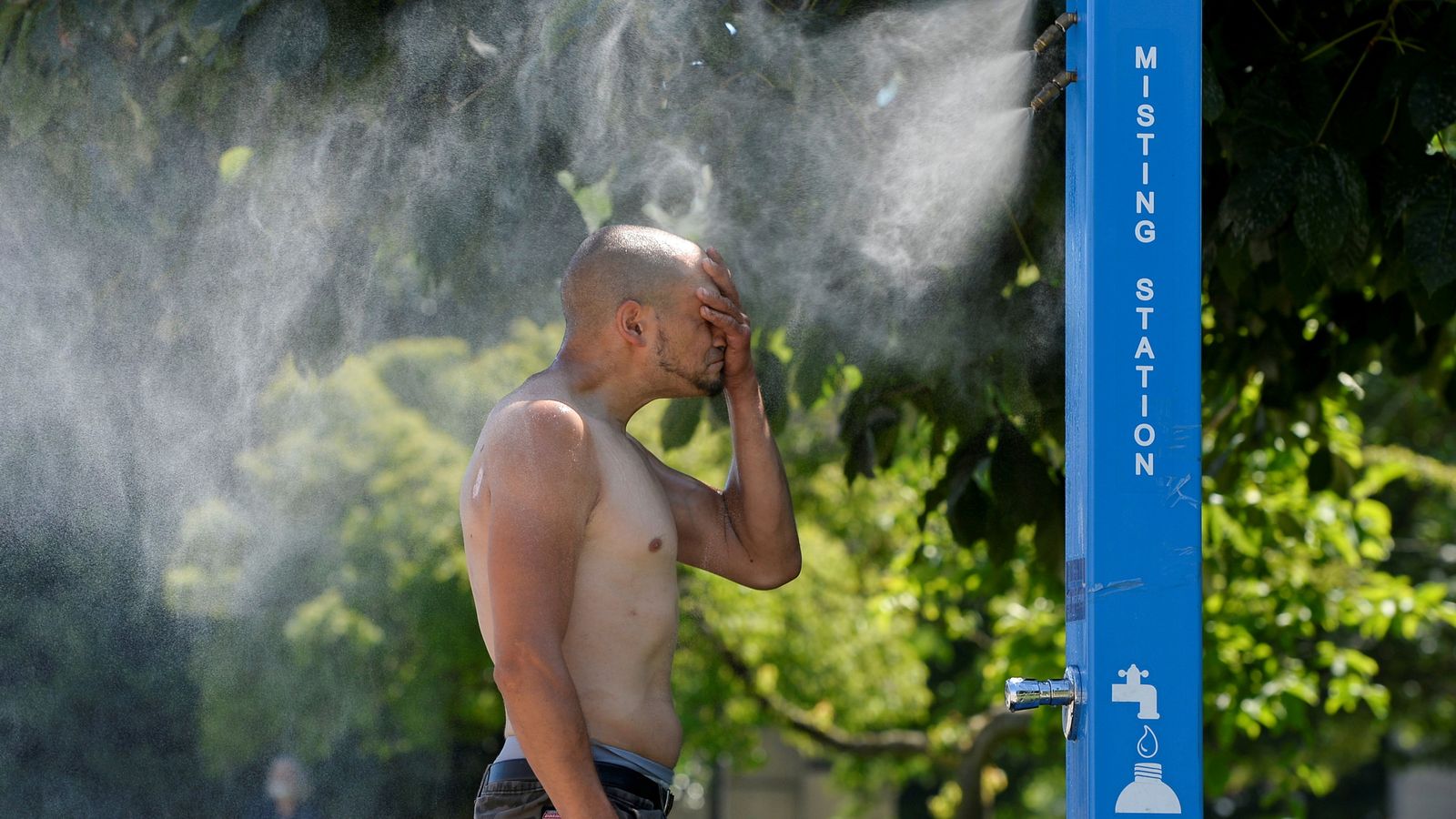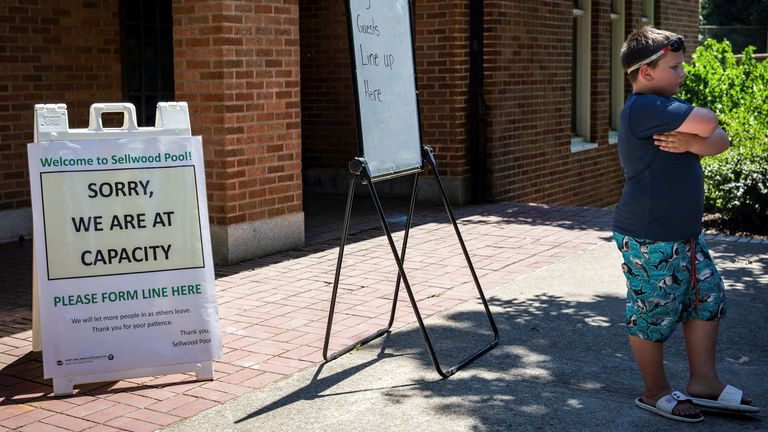Record high temperatures are being recorded across North America, with more than 100 deaths reported so far in Canada and states in the north-western US, caused by a so-called “heat dome”.
A heat dome is a weather phenomenon in which high-pressure atmospheric conditions have trapped air coming in from the Pacific Ocean, heating the air column while compressing it down, like a lid on a saucepan.
This area of atmospheric pressure has created a blocking pattern, sandwiching the high pressure between areas of low pressure, pushing cooler air away from the heat dome.
Usually winds can move a heat dome around, creating a heatwave, but because this dome stretches high into the atmosphere, the high pressure system isn’t easy to move and appears to be stationary.
Although it is difficult to attribute single incidents of extreme weather to climate change, which is based on a much longer-term analysis, extremely rare events such as this are expected to become more common due to the general increase in global temperatures.
On Tuesday 29 June, Canada experienced its highest ever recorded temperature at 121F (49.6C) – making it the third consecutive day in which records had been broken.
The record heat has also led to record drops in temperature overnight in some places, such as Portland, Oregon, dropping from 116F (46C) to 64F (17C).
The US National Weather Service has warned that the “dangerously hot conditions” could last until Thursday, with Washington State and Oregon having both seen temperatures well above 104F (40C) since Friday.
Canada saw 103 heat records broken on Monday across the provinces of British Columbia, Alberta, Yukon and the Northwest Territories.
To cope with the severe heat, dry ice is being used to cool water, people have been sleeping in “cooling shelters”, and a swimming pool in Seattle was closed because the surrounding deck area was “dangerously” hot.
Police in British Columbia said they had responded to 65 sudden death callouts since the heatwave began in the region on Friday.
“Vancouver has never experienced heat like this, and sadly dozens of people are dying because of it,” Sergeant Steve Addison of Vancouver Police said.
Commenting on the crisis in Canada, British Columbia’s premier John Horgan said that it served as a “big lesson that the climate crisis is not a fiction”.
“This is not a British Columbia problem, it’s not a Canada problem, it is a global challenge,” he said.
“And we all need to have citizens of the world coming together as we have, quite frankly, to address a global pandemic.”




